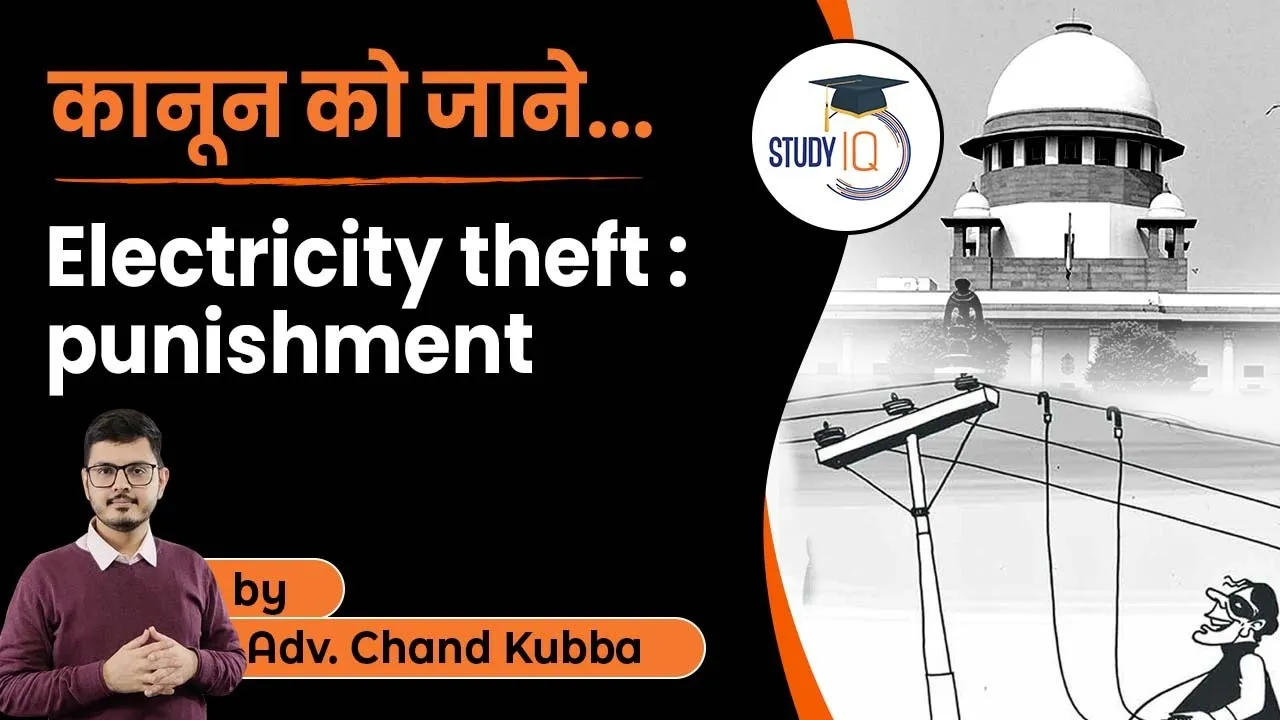Table of Contents
Electricity Theft, Electricity Act, 2003, Electricity Theft

- According to power experts the city discoms (distribution companies) lose somewhere between INR 10-15 bn annually because of power theft.
- According to a report –
- In Delhi, most of the areas where power thefts occurred were poorer parts of the city, in Kolkata, much of the electricity theft had been in posh areas.
Current Legal Position
- Electricity is a concurrent subject in Seventh Schedule.
- It means both Centre as well as State Governments can make law on this subject.
- In this context we find that the central Government came up with Electricity Act, 2003 .
- The act covers major issues involving generation, distribution, transmission and trading in power
Meaning of Electricity Theft-

- Theft of Electricity: A person shall be guilty of an act of theft of electricity if he dishonesty :-
- taps, makes any connection with overhead, under water lines or cables
- tampers a meter, or uses current reversing transformer, or any other device which interferes with accurate registration of electric current

- damages or destroys an electric meter, equipment, or wire so as to interfere with the proper metering of electricity.
- uses electricity for the purpose other than for which the usage of electricity was authorised
- Irregularity in paying the bill by bribing the billing authority and record the meter at a lower number than what it is shown in real life.
Access to the premises:
- 1. As per provisions contained in Section- 135 (2) of The Electricity Act-2003, any authorized officer of Nigam may enter, inspect, break open and search any place or premises and check the meter through which energy is supplied, where there is reason to believe that electricity has been , or is being drawn dishonestly.
- Any occupant of the place of search or any person on his behalf shall remain present during the search and the inspecting officer shall prepare a memorandum of inspection.

Section 136. (Theft of electric lines and materials)
- Whoever, dishonestly — (a) cuts or removes or takes way electric line, material or meter from a tower, pole, any other place of installation where it may be rightfully or lawfully stored or kept,
- Commits an offence of theft of electric lines and materials, and shall be punishable with imprisonment for a term which may extend to three years or with fine or with both.
Section 141. (Extinguishing public lamps):
- Whoever, maliciously extinguishes any public lamp shall be punishable with fine which may extend to two thousand rupees























 WhatsApp
WhatsApp